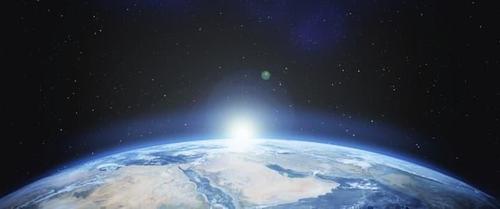When the International Energy Agency released its Roadmap to Net Zero report, OPEC slammed it as "destabilizing."
Russia said the IEA's plan could push oil to $200 per barrel. Even the IEA itself said the targets in the roadmap were going to be challenging. And yet, the people who will foot the bill for the energy transition are being told nothing about challenges. Bjorn Lomborg, environmentalist and president of the Copenhagen Consensus, recently addressed this discrepancy between the public narrative and the realities of the energy transition in this article for the Financial Post. In it, Lomborg noted the paradoxical claims that, on the one hand, net-zero will be the most challenging thing humankind has ever had to do (per IEA) and, on the other, "No one is being asked for a sacrifice" (per John Kerry, President Biden's climate envoy).
"George Orwell called this willingness to espouse contradictory claims doublethink," Lomborg noted in his article, adding that
"It is politically expedient and gets climate-alarmed politicians reelected. But if we want to fix climate change, we need honesty. Currently promised climate policies will be incredibly expensive."
The cost of the transition is one area that proponents of fast-tracking net-zero plans are shy about discussing. There is, for example, a lot of reporting on the cost declines in solar and wind technology, but there is little about solar and wind waste, which is turning into a problem already.
A recent article in the Harvard Business Review addressed this problem bluntly. The essence of the problem is that official reports about solar power deployment—and consequent waste—are based on the assumption that all panels now in operation will live through the end of their productive lives, which is not the case in reality, the authors note.
The International Renewable Energy Agency, for instance, admits that large amounts of solar panel waste could be generated in a decade but, the authors of the HBR article write, these large amounts of waste will, in fact, be generated much sooner because people are being actively encouraged to swap their old panels for new, more efficient ones. Most solar panels, in other words, will not live through the end of their productive lives.
Waste is only one cost aspect of the energy transition that doesn't get talked about much. There is also the issue of critical minerals that are used in EV batteries and that are going to become a lot more expensive than they are now because of the projected massive demand increase resulting from the push to replace ICE vehicles with electric ones.
There are already warnings that lithium supply is about to tighten further because of insufficient investment in new output. This will push the price of the battery metal even higher. This means EV batteries will become more expensive and, consequently, EVs, too, will cost more. Following the course governments have been following so far with regard to EVs, more expensive EVs will mean more subsidies for their potential buyers. More subsidies, for their part, would eventually mean higher taxes for everyone in the respective country because that's where the money for subsidies comes from.
There are plenty of examples of the sacrifices that, according to John Kerry, we won't need to make, and paying more for energy is only one of them. A more serious sacrifice that does get mentioned occasionally is energy consumption. While some net-zero plans talk about growing energy demand and satisfying it, this is not the case with the IEA report and a few others addressing the topic.
Indeed, the easiest way to reduce our dependence on fossil fuels is to use less of them. This is also true of all energy. The less energy we use, the better it is for the environment. But is it actually possible to somehow convince people to use less energy? Hardly, unless you force them to use less energy, and this is a risky course of action that costs votes to politicians.
What, then, are we to do? According to Lomborg, we need to talk about the challenges of climate change honestly, beginning with the fact that the damages anthropogenic climate change has caused the planet so far are not as dramatic as some computer models suggest. He gives us an example media reports that the 2020 Atlantic hurricane season was the worst in history. Actual data shows that it wasn't, but this did not get reported.
Honesty is certainly a good start, although it has its own cost and, for politicians, this cost will be high, which is why an honest discussion of climate change is unlikely. Setting more realistic emission goals would be a good step, too. This is also as unlikely as an honest discussion. Lofty goals draw in environmentally conscious—and deeply concerned by media reports—voters.
Realistic goals don't bring in the votes.

Commenti
Posta un commento